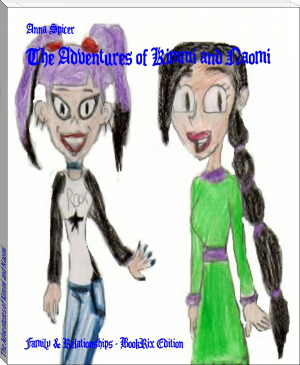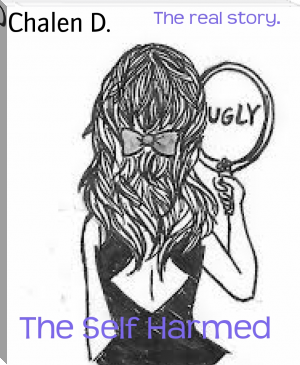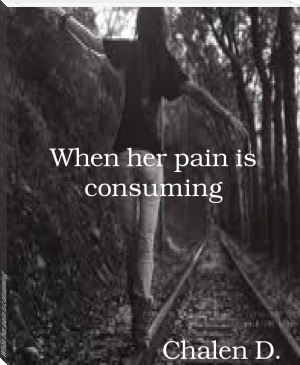Hayfields of the Mind by Jeanne Tody Beroza (color ebook reader .txt) 📖

- Author: Jeanne Tody Beroza
Book online «Hayfields of the Mind by Jeanne Tody Beroza (color ebook reader .txt) 📖». Author Jeanne Tody Beroza
A memory is at best a slippery thing. At its worst it’s an untrustworthy one, meriting no waste of words or the time it takes to viscerally process this thing that may never have actually happened. But might there not, at least, be a kernel of truth in something that sits so heavily on one’s mind? Another question I ponder is: can’t memory be a true representation of perceived experiences even though that perception has been colored by emotion, environment, and even the ability to recall facts?
I remember that Carrie, my older sister, lived in a different world from the one I inhabited. I perceived her most important concerns to be boyfriends and proms, hairdos, stylish clothes and worrying about obtaining a summer tan. She looks back at the same time and remembers things I was too young to even imagine including the pain and humiliation of bearing a child out of wedlock. She remembers hiding her brutalized psych and hemorrhaging soul as she struggled to begin anew in a different school, acting as if teenage angst was the most important thing in the world?
Robbie, my younger brother, hurt and at times physically threatened the life of our sister who was two years younger. My memory suggests he felt she was a bothersome brat. He incessantly picked on her without cause. He has no memory of the specific events I recall and says relationships between young siblings hold no meaning in terms of the persons each of us grows up to become.
I don’t think a memory can tell me why something happened or even how someone felt if they did not reveal their feelings at the time. I look back now and wonder if maybe my brother tried to wound my little sister because he was hurting. Was stabbing her with a fork or throwing rocks at her head his only ways of releasing pent-up anger and frustration? Have I gained insight with maturity? Do I use it to color the memories of my youth?
My youngest sister, Becky was in my charge. I was a caretaker, not a mother and once I became absorbed in my own emerging teenage angst of struggling to ‘belong’, to succeed, and to rise above the mud where my feet were mired, I might have abandoned her. Looking back I realize that memories of daily interaction with my younger sister fizzle over time and disappear. Might it not have been the same for my older sister with me?
Becky remembers being a non-entity, always alone.
Memories can be painful. Perceptions of the past, emotions that have sent tendrils deep into the soul and colored the lens with which we perceive the world throughout life can be so very painful. I wonder if it isn’t easier at times to wipe a memory clean and pretend the ugliness, the uncomfortable, and the inconceivable never happened.
But, memories can also bring joy. I remember spring lambs on the farm. My memories include cuddling their wooly, curly, slight little bodies and laughing as they jumped and cavorted about in the damp, spring air. I remember kittens and dressing them up with my brother. Who would ever guess the accomplished scientist of today dressed kittens in doll’s clothing with his big sister?
While my mother was still at home, before she was taken away from us, she took us to a lake to swim. It was some distance away over back roads. Today the lake is a dirty puddle, infested with shoreline weeds and surrounded solidly with people’s homes. When I was young it impressed me with its clean, blue water and sandy beach. It had a playground and a slide that was so tall that sliding down it meant going very fast and hitting the water hard. I was afraid of it.
Behind the fenced children’s swimming area, and beyond the canteen that sold beer, pop and ice cream and played rock and roll music constantly was an access to the rest of the lake. An old wooden walkway lined the rear of this concrete cantina. The water at the walkway’s edge was over my head. When I slipped into the water, I could swim all the way to the floating raft where the girls in bikini’s and older boys lay in the sun. My oldest sister was always there. I went out by myself as soon as I could dog paddle my way safely through the deep water, but when I reached the raft a boy reached down and pushed my head under the water saying, ‘Kids’ didn’t belong on the raft.
By the time I was wearing a two-piece suit and might have been welcome on the raft, my mother was gone. There was no one to take us to the lake. My father, feeling sorry for us alone at home during the hot summer bought us one of those above the ground, plastic liner pools with metal sides. We three younger kids used and enjoyed it but it never felt the same as I dreamed it would feel to be welcomed on the raft wearing a bikini.
My first coherent memories are of growing up on a farm in central Michigan farm. I loved that farm! To this day I have a deep appreciation for animals, growing things and the land. Caring for livestock; planting, weeding and harvesting a garden; playing in the fields with younger siblings; and being able to escape to nature saved me when troubles became too heavy to bear. My memories of the farm itself and the work it took to maintain it are happy ones. Today, forty years later, I look back and remember throwing down hay in the winter for lowing red and white cattle and walking the fields in late spring looking for new calves.
I felt an affinity for the huge herd of relatively stupid and simple, yet content, sheep. I enjoyed bundling their wool during shearing time. Catching and worming them while I rode their bodies, their heads tucked between my legs as I inserted the worming syringe between clenched jaws. I enjoyed bottle raising the orphan lambs. Robbie, Becky and I skated on swamp ice in the winter and waded into berry thickets gathering just enough berries to stuff our bellies and to take back home to make jam or a pie. We played for hours in deep patches of deciduous woods and wondrous places that bore our made-up names of Blueberry Hill and Strawberry Meadow.
We swung on ropes in the haymow. Robbie fell and cracked his head open. I almost put a pitchfork through his foot while we were mucking out one of the cowsheds. All three of us rode the sheep in the barn and laughed when we fell off. None of us were brave enough to ride the calves. We didn’t want to die.
Farming was hard work. I mowed acres of grass in big yards with a push mower and planted and weeded acres of garden. I rose early each morning, even on school days to feed big herds of cattle and sheep and a flock of chickens. In the fifties, as an adolescent, I wished I didn’t have to work so hard. I look back now and know it was the constant sense of responsibility that helped me through the difficult times, growing up without a mom, trying to please a very demanding father, and trying to raise my younger brother and sister without a clue as to how to do it right. I can’t say I was perfect at any of those endeavors, but I did the work, raised the kids and grew into an adult the best I could.
These things I’ve put down are my memories. Dad and mom are both dead now, but if I’d shared any of these recollections with them, I’m sure they would have remembered the times and instances differently. Does this change them? Not for me.
One memory of an incident that took place on a hot steamy July day in the hay field keeps playing at the edges of my mind. I’ve renamed my sisters and brother in this account but keep my own name, Jeanne, since this is my story. Carrie was gone the day of this incident, Becky was in the house and dad sent Robbie away stating he wanted to talk to me alone. Probably only my father would be able to recall our actual words or what his feelings or intentions were on that hot day when he had such an important discussion with me about my mother. I have never forgotten. How could I? But, even now as I look back and search my mind in an effort to capture the incident as accurately as possible, I know my child’s feelings may have colored my memories of the day my father told me I had to hurt my mother.
We produced all of the food for the animals on our farm. This meant tons of time spent planting and cultivating fields, harvesting oats, corn and wheat, and cutting, raking and baling hay. Dad did most of this work after his 8 to 5 white-collar job in the capital city an hour away or on weekends. As soon as we were old enough, Robbie and I helped.
July was haying time. As a child I would have said, “Don’t ask me why such a hot, dirty, hard, thankless job had to be done during the hottest and most humid time of the year under the boiling sun, while wearing long pants and sleeves to protect one’s skin from the abuse it was given while haying.” Probably, I really said something less thought provoking and more off-color, but now that I am older, I still think putting up hay in July in hot, humid Michigan as perverse.
We didn’t have a hay baler of our own so didn’t get to do things the easy way of having the baler shoot the bales out its rear onto a following hay wagon. We hired a neighbor to bale our hay and had to hope he could come when we needed him. My father watched the weather carefully, trying to find several days of good hot, drying weather coming up. Once he did, always in early July, he would cut the alfalfa-grass mix field for the sheep or the pure clover for the cattle and then call the neighbor. “It’ll be ready to bale in three days,” he would say. “Can I count on you having a forty acre field done for me by Friday night?” By Friday morning when the dew left the ground, the hay was waiting and ready. Any longer and it would be too dry, losing its delicate, nutritional leaves to the ground when baled. Any earlier and it would still be damp and green. It might mold in the bale or even start a fire due to built-up internal heat. The neighbor and his equipment worked while dad was at his day job. Once he had returned to the farm, we spent Friday evening and the following weekend haying.
This was the first year eleven-year-old Robbie was allowed to drive the tractor. I can’t say he was a natural at it. I was on the wagon stacking bales five rows high while dad walked the rows and threw the bales up to me. Even though only five feet tall, I was still stronger than my younger brother. At one hundred pounds, I weighed forty pounds more than the average bale. Dad had waited patiently for his only son to add a few more pounds and





Comments (0)